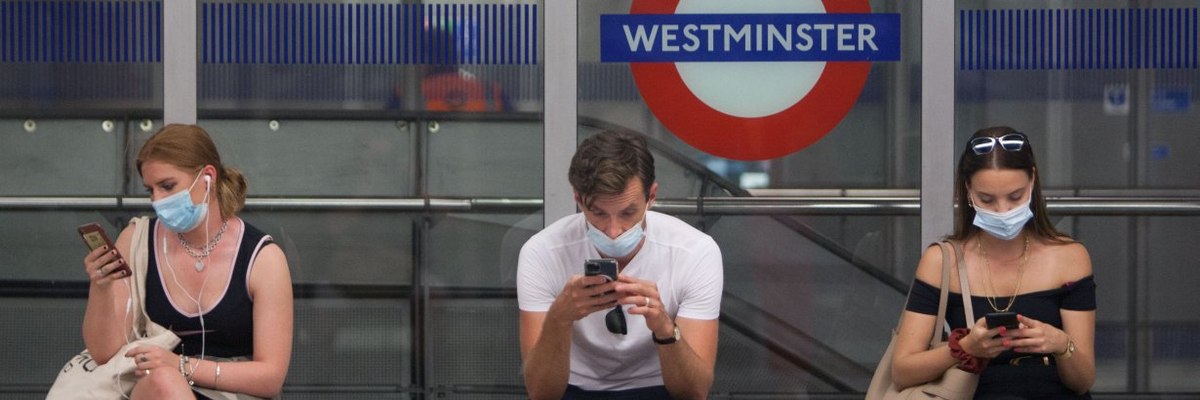Three in five Britons want to see mask requirements brought back on public transport
As the latest data from the ONS suggests that the number of people in the UK with COVID-19 is on the rise again, YouGov research looks at people’s concerns for the winter, and public attitudes towards restrictive measures and further vaccines.
Around half of Britons are worried about both the number of people catching COVID-19 (49%), and the number of people being hospitalised with the illness (53%) increasing this winter. People are less worried about catching it themselves, with just over one in three (37%) saying so.
Older Britons are more concerned about COVID than their younger peers: half of over 65s (53%) are concerned about catching COVID-19 themselves, compared to just a fifth (21%) of 18-24s, while 70% of the oldest group are worried about increasing hospitalisations, compared to 47% of the youngest group.
Whether a place is busy or not is the primary driver of decisions to wear a mask
When it comes to wearing masks, just a quarter of Britons (27%) are still wearing a face covering at least sometimes when travelling on public transport, while 39% at least occasionally opt to wear a mask in public spaces such as shops. However, only 6-7% are wearing a face mask every time they go on public transport or visit a public space.
For those who wear a mask most or some of the time, but not all of the time, the main motivation for that decision is how busy the transport is space is – six in ten (59%) say that they only don a mask if it is busy. For a further 17% the issue seems to be to organisation, with respondents suggesting they would wear them more frequently were it not for forgetfulness.
There is significant support for reintroducing some COVID restrictions
The survey also examines public attitudes towards re-introducing COVID-19 restrictions, both now, and if COVID-19 hospitalisation numbers were to rise this winter.
Thinking about the situation as it is at the moment, there is strong support for both self-isolation for those who test positive for COVID-19 (75%), and for mandatory testing for those who have symptoms (65%). Three in five (61%) would also back measures to enforce mask wearing on public transport. There is less support for the same measure being applied to indoor public spaces, although the figure is by no means insignificant – half (49%) would support masks being worn in places like shops and theatres right now, with 43% opposed. Older people (64% of those aged 65 and above) are particularly supportive of such a move.
There is significantly less support for measures that would restrict people’s social lives – 42% of Britons would support the return of social distancing rules, while only half as many (20%) would go further by backing limits on the number of people you can meet with at any one time (e.g. the rule of six).
Support for all these measures increases in the event there was an increase in the number of people being hospitalised with COVID-19 this winter. Masks in public spaces see the biggest jump, with support for this measure increasing by nine points to 58% under these circumstances.
However, most Britons remain optimistic that the government will not need to re-introduce such restrictions to control the spread of COVID-19 this winter, with 6 in 10 (61%) saying that they think such action is unlikely.
There is also broad support for further COVID booster vaccines
The latest wave of booster jabs are currently being rolled out to those who are deemed to be vulnerable, or are over the age of 50, but three quarters (75%) of the British public would support this being extended to everyone this winter. Our results also suggest that there would be a strong uptake of the vaccine if it was freely available, with seven in ten (71%) saying that would be likely to have this booster.
As has been seen since the vaccine rollout began, encouraging compliance among younger people is more difficult. Just half of 18-24 year olds (48%) say they would be likely to have the booster, with more than a third (36%) saying they are unlikely to take up the offer of a free vaccine. At the opposite end of the age scale, 89% of those aged 65 and above would be likely to have the booster, including 82% who are ‘very likely’.
Photo: Getty











